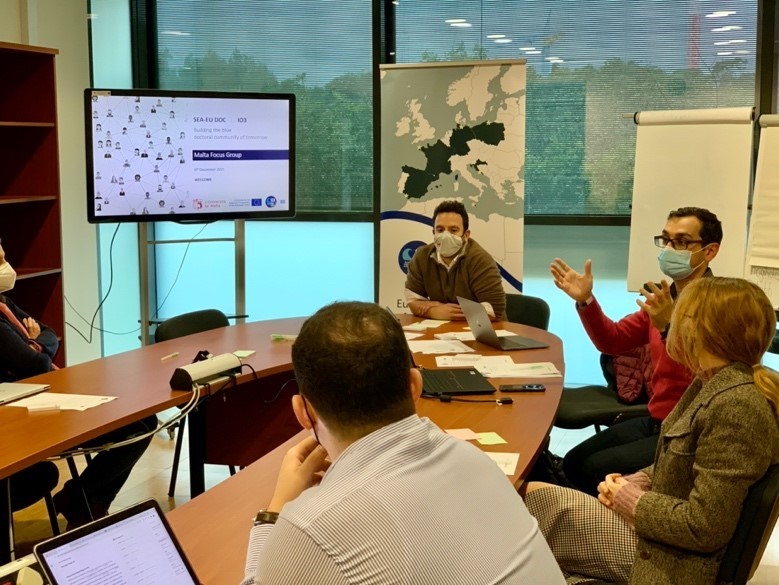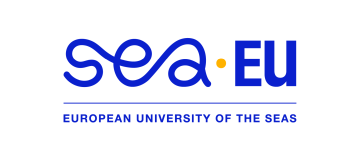The alumni network is a living forum where people with similar backrounds meet. There is variety of roles that one alumni network can play. Some join to keep in touch with their peers, some search for business opportunities, job offerings, events, and some on the other hand want to take advantage of the special discounts and privileges offered by membership. Since we are creating alumni network of blue doctorate holders, we thought it would be interesting to meet with some potential future members and examine their thoughts and needs regarding beneficial and effective elements of an alumni network. Our choise of approach in this was a combination of focus group with design thinking exercise.

Implementing focus groups withing project task “Building the blue doctoral community of tomorrow”
First, we selected a group of questions that seems relevant and important for the establishement of the network. The questions were about general benefits of the network, collaboration opportunities/ events and preferable communication channels. The second step was to define recommendations in terms of useful features for an effective alumni network through design thinkink exercise. The workshop was held at the University of Western Brittany (France), Gdansk (Poland), Cadiz (Spain), Kiel (Germany), Malta and Split (Croatia). Focusing on 3 target groups of the network, Phd students, Phd holders and company representatives we gathered 60 participants.
To begin with, among the most frequently mentioned benefits of the alumni network, the focus group participants cited job opportunities, networking, and knowledge exchange. Some see the network as a place of support and mutual help where all job seekers can talk and support each other in the job search period and thus avoid the loneliness that can occur. Through the network, doctoral students would look for the opportunity to do internships and training before tackling a job search. Lectures and informal events are good starting points to allow students to get more information about different job perspectives and work environments. In addition to internship opportunities, future members of the network would be important if working groups were implemented in the alumni. In this way, students could manage their education and career more independently.
Among doctorate holders finding partners for participation in science projects is the most common personal reason for being a member of an alumni network. Also, through the network, focus group participants see the possibility of finding adequate persons to help solve scientific doubts. So, the existence of such a network would allow the exchange of experiences and planning joint projects. Furthermore, the network should also serve business people. It is necessary to bring the labor market closer to students and the needs of the economy to the scientific and academic institutions. Science often lacks the perspective of how things are regulated in the free economy. Using the network, company representatives could expose their problems and express their needs, and it is a good base for collaboration opportunities. The goal should be to bring each other up to date with the current state of knowledge.

Furthermore, future users support workshops focusing on specific topics. Social gatherings are also welcomed, but if these are too frequent people will lose interest. Public lectures and seminars are also desirable for the dissemination of information. Workshops and informative training schools could attract past students. It would be interesting for students if they knew who will attend the events so it can be considered that the organizer indicates who will attend the event. The researchers and company representatives are interested more in round tables and b2b meetings. Network communication can be combined via all channels. However, the balance between using multiple channels or just one is needed. In order to meet the needs of all target groups, we need to focus on those communication channels that have proven successful and these are LinkedIn (for business industry), mailing list, Twitter (for science). Research Gate, Facebook, and the Alumni Network website. Through the design thinking exercise we came to conclusions about characteristics that a network should have if we want to have a single European network and not a group of national ones. Among the main goals of the network should be employement with the aim of connecting and informing about apportunities inside and outside the academy. Furthermore, training and support to better prepare students for the labot market. Connection with the aim of creating a community of European doctors and doctoral students. Promotion of people, skills and common identity.
What do you think?



Leave a Reply